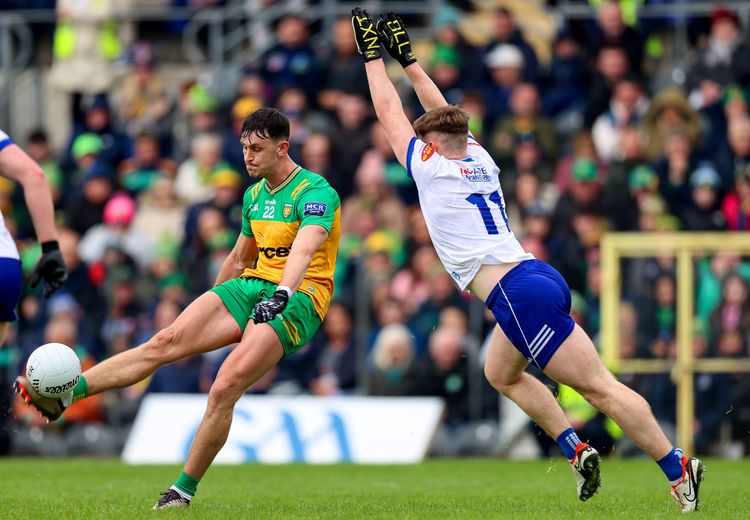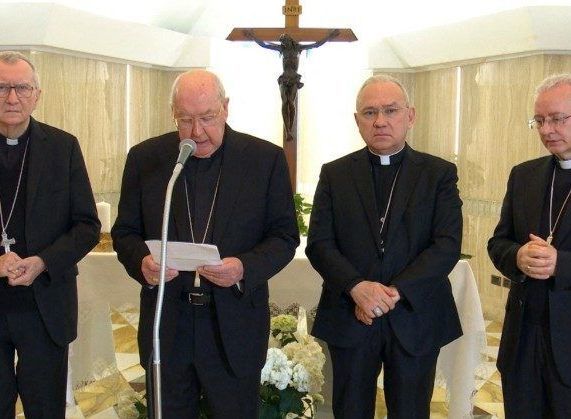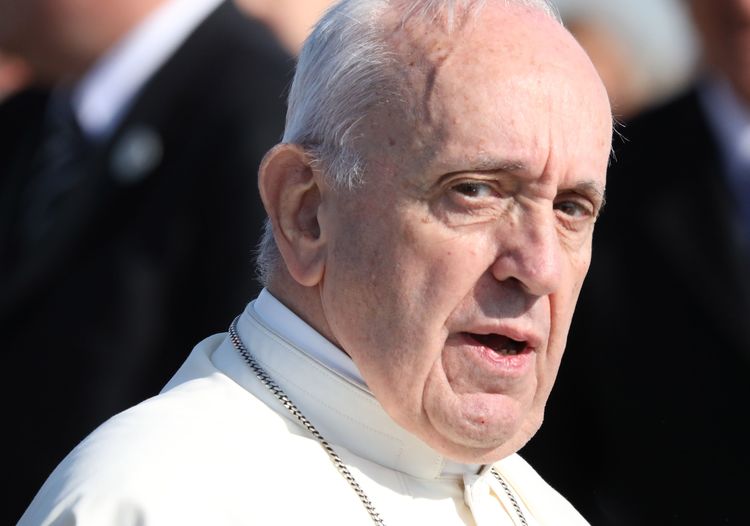Colm Meaney and Timothy Spall in a scene from “The Journey.”
IFC FILMS
By Michael Gray
The peace process in Northern Ireland is now two decades old, and the landmark accords of the Good Friday Agreement that set bitterly-opposed factions on a new course to end three decades of carnage, and the St Andrews Agreement that restored the Northern Ireland Assembly in Belfast to administer the Six Counties, are replete with drama and remarkable real-life characters that are well worthy of adaptation to stage and screen.
The St Andrews Agreement gets the Hollywood treatment in Belfast-born director Nick Hamm’s new film “The Journey,” a fictionalized account of actual events at that pivotal conference, hosted by the British government at St. Andrews in Fife, Scotland, in October 2006. The film is a feature-length drama that imagines the genesis of an extraordinary change that ensued from that negotiation: the friendship between two diametrically-opposed figures of modern Irish history, Rev Ian Paisley, leader of the Democratic Unionist Party, and Martin McGuinness, a senior figure in the nascent Provisional IRA at the time of the Bloody Sunday Massacre in 1972, and ultimately a skilled peace negotiator, an MP for Mid-Ulster, and a minister in the Northern Ireland Assembly.
The two men would have known all about each other for decades, but had not so much as had a single conversation (“not even about the weather” as McGuinness wryly put it), until the St Andrews conference forced them to seek common ground. The film’s central premise posits the two men unhappily sharing a limo en route to the airport to catch a private plane that will take them both back to Northern Ireland. Paisley's intent is join his wife and family for their 50th wedding anniversary celebration, and McGuinness is returning home to meet his constituents to update them on the discussions at St Andrews. Crafty machinations by British agent Harry Patterson (played by the late John Hurt, in one of his final roles) contrive this reluctant rideshare, to give “The Journey” its fictional core.
Hamm’s film is essentially a two-hander devoting the majority of its screen time to these two politicians sparring in a confined space, and at this compact scale the film has the feel of an adapted stage play, though the script is written for the screen by Bangor, Co. Down native Colin Bateman. Not all is at it seems, though, in Bateman’s contentious carpool - the gormless young limo driver (Freddie Highmore) is really an armed MI5 agent, and the testy dialogue in the back seat is closely monitored on CCTV from a control room back at St Andrews, by agents of the British government.
[caption id="attachment_89211" align="alignnone" width="300"]
ALBERT GONZALEZ/ROLLINGNEWS.IE
Casting is crucial when a script pitches two significant figures from the political sphere against each other in a tight space, and Hamm cast Colm Meaney, an actor politically well attuned to the nationalist standpoint, as the Sinn Féin man, and highly-regarded English character actor Timothy Spall (“Mr Turner”) as the DUP leader. Spall’s portrayal presents the greater challenge, as Paisley, a pounder of Presbyterian pulpits since the early 1950s, and scourge of anyone who dared counter his hardline Unionist and anti-Catholic invective, from the Civil Rights Movement in Ulster to the pope in Rome, was, by 2006, much diminished by age, and in frail health. Thus anyone looking forward to some Ballymena thunder from Spall’s rendition of the Big Man will be disappointed by his legitimately nuanced performance. Meaney fares better as McGuinness, a more low-key figure than Paisley, and the two actors tuck in with gusto to their juicy roles as McGuinness strives to wear down the intransigence of a man who has spent half a century telling people to talk to the (red) hand. Frosty introductions devolve into rancorous argument, but by the time their commute to the airport is at an end, the two enemies begrudgingly admit that they have much in common as Irishmen, Ulstermen, and determined advocates for their divided communities.
Along the way, “”The Journey” takes a regrettable detour onto the unapproved roads of implausibility as the limo meanders through beautiful countryside to the airport. Back at the control center in St Andrews, anyone and everyone, it seems, can wander into the room to catch up on the latest insults from the CCTV feed. Before long, an unctuous Tony Blair (Toby Stephens), an ineffectual Bertie Ahern (Chris Lambert) and a host of others have crowded in around the monitors in expectation of some breakthrough, like anxious zoologists willing the last of the endangered rhinos to breed in captivity. Most implausible of all, Ian Paisley Jr. (Barry Ward) is in on the act. If the two men in the car knew they were being played like that (as eventually they would, given who was in on it), the double act we came to know as the Chuckle Brothers would never have come into being.
The Journey opens in theaters on Friday.









